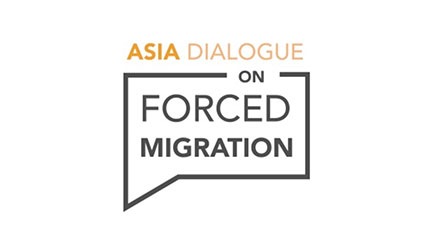The Hon Julian Burnside AO
 Julian Burnside QC is a barrister based in Melbourne. He acted against BHP in the Ok Tedi case, for Alan Bond in fraud trials, against Gina Rinehart on behalf of Rose Porteous, and for the Maritime Union of Australia in the 1998 waterfront dispute against Patrick Stevedores. He was Senior Counsel assisting the Australian Broadcasting Authority in the ‘Cash for Comment’ inquiry and for Liberty Victoria in the Tampa litigation. He is President of Liberty Victoria, and has acted pro bono in many human rights cases, in particular concerning the treatment of refugees. In 2004 he was elected as a Living National Treasure and named as an Officer in the Order of Australia (AO) iin 2008.
Julian Burnside QC is a barrister based in Melbourne. He acted against BHP in the Ok Tedi case, for Alan Bond in fraud trials, against Gina Rinehart on behalf of Rose Porteous, and for the Maritime Union of Australia in the 1998 waterfront dispute against Patrick Stevedores. He was Senior Counsel assisting the Australian Broadcasting Authority in the ‘Cash for Comment’ inquiry and for Liberty Victoria in the Tampa litigation. He is President of Liberty Victoria, and has acted pro bono in many human rights cases, in particular concerning the treatment of refugees. In 2004 he was elected as a Living National Treasure and named as an Officer in the Order of Australia (AO) iin 2008.
"…ideas which stand unchallenged are likely to be flawed. It is in the
contest of ideas that we have the best prospect of reaching something
like sound policy. With the birth of the Centre for Policy Development, the conversation can begin."
The Hon Fred Chaney AO
 Fred Chaney practised law in New Guinea and Western Australia before entering the Senate in 1974. He was leader of the Opposition in the Senate from 1983 – 1990. Among his Ministerial appointments were Aboriginal Affairs, Social Security and Minister Assisting the Minister for National Development and Energy. After leaving Parliament he undertook research into Aboriginal Affairs policy and administration as a Research Fellow with the Graduate School of Management at the University of Western Australia. He was Chancellor of Murdoch University from 1995 until 2003. In 1994 he was appointed as a member of the National Native Title Tribunal, and in January 1997 he was appointed an Officer of the Order of Australia. He served as Co-Chair of Reconciliation Australia Ltd from 2000 – 2005 and continues as a Director on the board. In 2007 he chaired the Consultation Committee on a Human Rights Act for Western Australia and in 2008 he was awarded the Sir Ronald Wilson Leadership Award for ‘Exceptional leadership in the fields of social justice, human rights, equality and anti racism’.
Fred Chaney practised law in New Guinea and Western Australia before entering the Senate in 1974. He was leader of the Opposition in the Senate from 1983 – 1990. Among his Ministerial appointments were Aboriginal Affairs, Social Security and Minister Assisting the Minister for National Development and Energy. After leaving Parliament he undertook research into Aboriginal Affairs policy and administration as a Research Fellow with the Graduate School of Management at the University of Western Australia. He was Chancellor of Murdoch University from 1995 until 2003. In 1994 he was appointed as a member of the National Native Title Tribunal, and in January 1997 he was appointed an Officer of the Order of Australia. He served as Co-Chair of Reconciliation Australia Ltd from 2000 – 2005 and continues as a Director on the board. In 2007 he chaired the Consultation Committee on a Human Rights Act for Western Australia and in 2008 he was awarded the Sir Ronald Wilson Leadership Award for ‘Exceptional leadership in the fields of social justice, human rights, equality and anti racism’.
"The new economic policy consensus post 1983 is widely seen as the foundation of later prosperity. Unfortunately the bi-partisan recognition of the importance of more open markets to economic efficiency and wealth production has led to some lazy thinking about policy generally. Who needs policies when the market will solve your problems? Markets become a substitute for having to think seriously about objectives and means. Present economic and strategic uncertainties are reminding us that we need to think again, we need more conversations and more debates about directions and methods. Plunging in to war without debate, plunging in to interventions in Indigenous communities without debate and without adequate preparation and human resources are recent reminders that Australia needs fresh thinking about policy and its implementation. We need discussion and debate to get it right."



